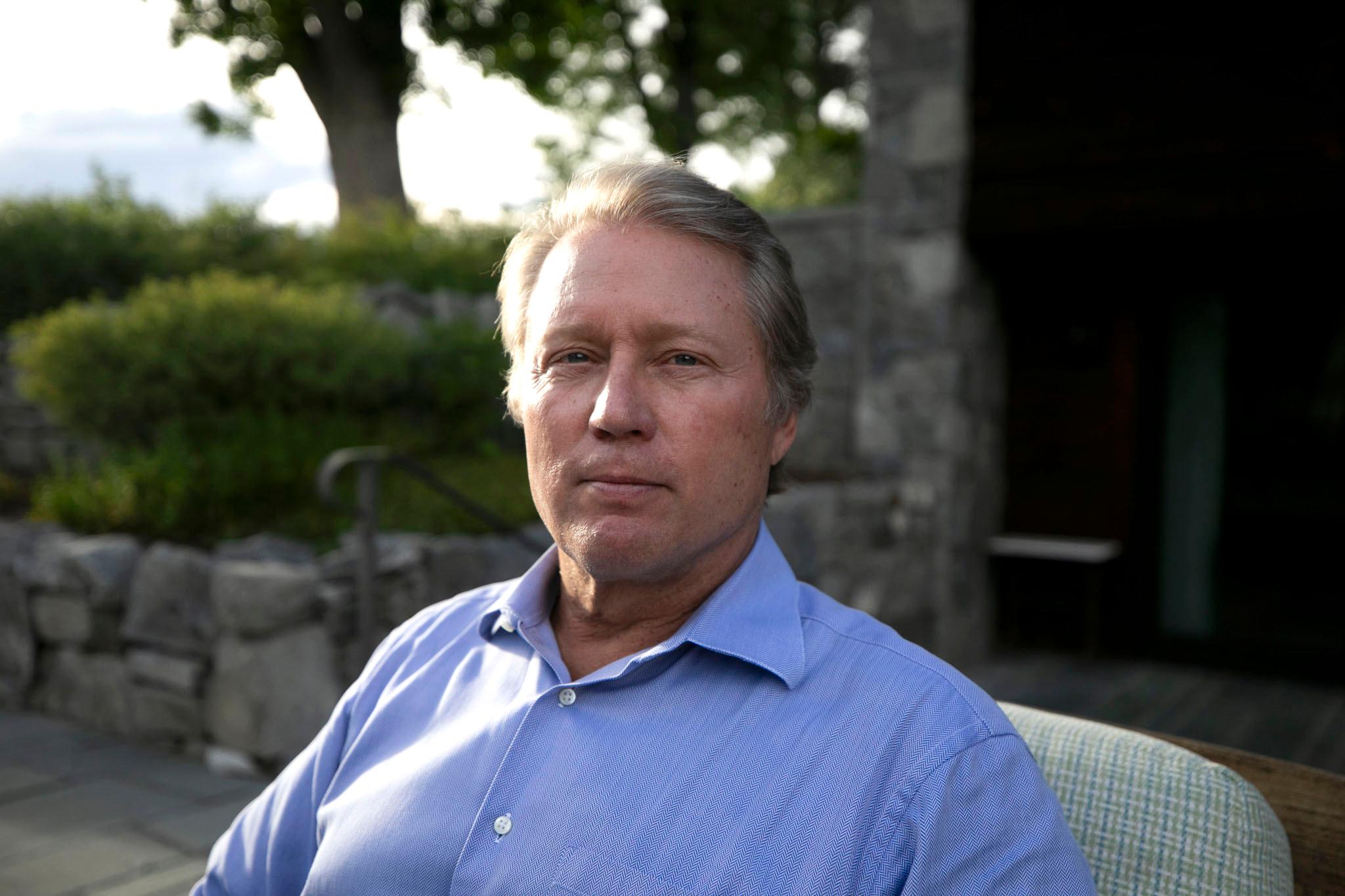
Across the country, congressional lines have turned into battle lines, as states face off in an unprecedented mid-decade redistricting showdown.
Last month, Texas Republicans, acting on the urging of President Donald Trump, redrew their congressional lines to flip seats from blue to red.
Democrats in California responded with an emergency ballot measure set for this November, asking voters to temporarily suspend California’s independent redistricting commission and allow for an out-of-season gerrymander.
The fight has spread, with Missouri advancing a new, more Republican map, and Indiana and Florida looking to follow suit.
That has many Colorado voters wondering: could something like that happen here? In the past decade, Colorado has developed into a solidly blue state. But while Democrats control every statewide office and hold wide majorities in the legislature, the state’s U.S. House delegation is evenly split, four Democrats and four Republicans.
That division is the product of Colorado’s 2021 redistricting process, conducted for the first time by an independent, politically balanced commission. In 2018, Colorado voters agreed overwhelmingly to take politicians out of redistricting and to explicitly make competitiveness a priority for new districts. Those rules aren’t just law; they’re written into the state constitution.
Kent Thiry, the multi-millionaire former CEO of the dialysis company DaVita, was the chief financial and political driver of that 2018 switch. In recent years, he’s been behind a whole range of efforts to reshape Colorado’s democracy, and along the way has become one of the biggest individual spenders on Colorado politics. He helped move the state from presidential caucuses to primaries and gave unaffiliated voters access to party primaries. Thiry was also the driving force behind last year’s unsuccessful effort to get Colorado to adopt ranked choice voting.
Thiry describes the current rush to partisan gerrymandering as a cancer metastasizing through the nation, but hopes in the long term it propels voters in more states to demand redistricting reform.
“Keeping our democracy healthy is a full-contact sport that takes very active engagement,” said Thiry. “The one silver lining in the current dark, dark, dark cloud… (is) there's an awareness out there that's 100 times larger than anything we could have ever funded philanthropically.”
CPR public affairs reporter Bente Birkeland recently sat down with Thiry to hear what he makes of the mid-decade redistricting war, what it could mean for Colorado, and for his larger effort to change American elections.
This interview has been edited for length and clarity.
What is this moment like, as an advocate for commissions, to watch all of this happening on a national level?
It's kind of like your worst nightmare turning out not to be a nightmare, but actually true and happening.
I first started staring at gerrymandering back literally fifty years ago when I took my first political science course, and then first worked on getting rid of gerrymandering back in 2005 and 2006 in California, where we passed the redistricting initiative, much to everyone's shock. That's what they're contemplating changing as we speak.
Anyone who treasures representative democracy and the fragility of representative democracy has to be just horrified at what is happening right now.
How big a setback do you think this is for independent redistricting commissions? Do you think it's the end of this idea gaining more traction in the future?
No, I don't think it's the end, but it certainly will be even more difficult going forward.
Let's remember, however, that you can have gerrymandering reform at the federal level. The federal government retains the constitutional right to do that. And as much as the current Congress is, of course, not at all disposed to do that, it wasn't that long ago when the Democrats had a trifecta with Biden in the presidency, they had a bill called H.R. 1 and it had gerrymandering reform contained within it.
It had a chance of passing, had the Democratic partisans not loaded it up with so much partisan stuff going their direction that the bill fell totally. But it was only (four) years ago that there was a clear rifle shot towards either getting, or getting very close, to having it done at the federal level. And anything that gets close, if it was focused on, would begin to change the national conversation on this subject.
And like so many other times in our nation's history, whether it's women's suffrage or civil rights or Mothers Against Drunk Driving, sometimes it's not until the people well up as a group that you can turn the tide. And until you do, it looks impossible — until it's not.
What is it like when you worked on the initiative in California a long time ago to see what's happening now? And do you support what Governor Newsom is doing in California?
It feels terrible as the co-author. I was literally the one who put together the tri-partisan group — Ds, Rs and Independents — and facilitated all the debates over six months, paragraph by paragraph. We paid for the campaign advice to help craft the language, paid for the focus groups, the polling … So my roots couldn't be deeper with respect to California gerrymandering.
And I can respect what Newsom is doing, but I will not support it or work for it. But I am not critical of those who have decided that right now they're in a gunfight and you can't unilaterally disarm. I respect that logic. I just won't be an active part of it.
In Colorado, there already has been a ballot initiative filed to allow the governor to conduct emergency redistricting. But looking at what California is doing, that approach just seems exceptionally challenging to try to attempt in Colorado.
It would be very difficult to change Colorado in anything less than two, three, four years. It's virtually impossible to do it sooner than that, and very difficult to do it anyway because of the amount of support you'd have to generate.
The fact is, 70 percent of people voted in favor of this. So it had really remarkable support.
Both parties started out in opposition, but the coalition that we put together was so strong, including some of the significant funders from both the Democrat and the Republican sides — prominent people from Ds, from Rs, from independents. And then we worked through such an extensive process of collaboration, negotiating, trading, rewriting. It was a great example of citizen democracy. The coalition was so broad by the end that the legislature that had had every intention of opposing — and then we were going to have to raise the money to go get the signatures to put it on the ballot — when they saw the coalition of good Coloradans from across the political spectrum that had co-authored and signed off on that proposal, both chambers, both parties voted unanimously.
We're one of the few states, there's only five, that have competitiveness actually enshrined as a relevant filter. And we may actually in fact have the strongest language for that.
So Colorado has a lot to be proud of. But it's also an example of when the people stand up, When you get that full spectrum of people, then even a legislature that was starting out in the opposite direction can be overcome.
When it comes to Colorado, we’re a blue state, nationally. Democrats control state government, including every statewide office. But we have a split congressional delegation — four Republicans, four Democrats. Do you think the independent commission that set up those congressional districts has resulted in representatives that represent the politics of the state?
Yes, is the short answer.
I think it's been a dramatic example of why gerrymandering reform is so powerful — the fact that we do have a split, that we do have one intensely competitive district. CO-8, one of the most competitive districts in the country and a bellwether for where the American people are. And (Colorado has) a couple other districts that are a lot closer to being competitive than some people realize.
But I think it has been tremendously effective. And if we hadn't done it, we would be as heavily gerrymandered as the worst ten states in the country. And that would be nothing to be proud of.
Do you think it is fair to say that blue states are more disadvantaged by having the commissions?
It's a complicated question.
In general, political reform, election reform is more popular in blue states than red states. That is just a fact… And so in that sense, there is, if you look at it narrowly, a disadvantage.
On the other hand, those superior election systems where there is more choice and competition and actually meaningful votes cast should result in a more healthy state in all regards. And therefore, there would be an advantage.
If you could go back in time, is there anything you do differently on this effort?
Yes. I hate thinking about it because it's so important, but back when we won in California in 2006, I decided not to try to launch a national effort. It seemed too daunting at the time. I was focused on some other things like open primaries, like citizen ballot initiatives. And had I and others started working on it more, sooner, we might be in a better spot.
So yes, I wish I had moved more aggressively to try to create a bigger, broader, more participative, more edgy national effort. I wish I would've done that sooner. And with more intensity.
Finally, I just wonder if you anticipated a political moment like this happening.
I've been scared, and that's why I've used the metaphor of the cancer, because even before all the publicity of this year, this cancer has been advancing significantly for the last ten years. Which is why, starting in 2016, we accelerated our efforts and started to get involved across the country with a group called Unite America.
This Texas mid-decade redistricting is sort of like using a new missile in a war, but already the conventional arms race between the two parties has been very significant for a full decade or more.
And so yes, I've been worried about an inflection point in a race to the bottom, and now that may be where, for at least some period of time, that's what we're going to be dealing with.









